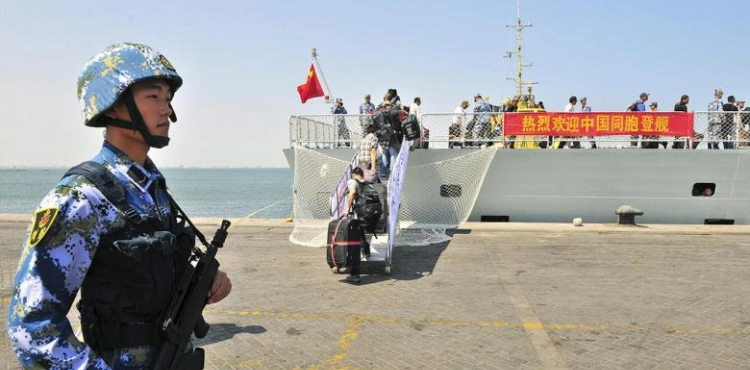China may increase its military bases around the world to protect its projects linked to the "New Silk Road" program, the Pentagon said in a report published Thursday.
According to the Pentagon´s annual report to Congress, "Chinese officials are using China´s growing economic, diplomatic and military weight to strengthen its control of the region and expand its influence around the world."
"Chinese enterprises, such as the new Silk Road, may push for the construction of overseas military bases based on China´s view that they need to protect their projects," the report says.
China is officially the only foreign military base in Djibouti. But Beijing "seeks to build additional bases in countries with good old relations with it, such as Pakistan, and other countries that traditionally receive foreign military bases," according to the Pentagon.
An Afghan Defense Ministry official in 2018 told AFP that China was negotiating with Afghanistan to build a military base in the mountains and near the border between the two countries, in order to prevent the entry of Islamist fighters to its territory and help its neighbor at the same time.
The official said al-Qaeda would be Afghan, but Chinese troops were seen patrolling with Afghan soldiers.
The new Silk Road projects, officially known as the "Belt and Road", aim to build transportation and energy infrastructure projects in countries they need in Asia, Europe and Africa.
The Chinese initiative was launched in 2013 and is financed by investments or loans of hundreds of billions of euros. Opponents of the project say it gives priority to Chinese companies, increases the debt of recipient countries and damages the climate.
Noting that the project "raised concerns about China´s intentions, Chinese officials relaxed the promotion speech without altering its core strategic objectives," according to the Pentagon report.
Chinese President Xi Jinping recently defended the pilot project to 37 foreign officials who met in Beijing and called on additional countries to join his huge but controversial project.












